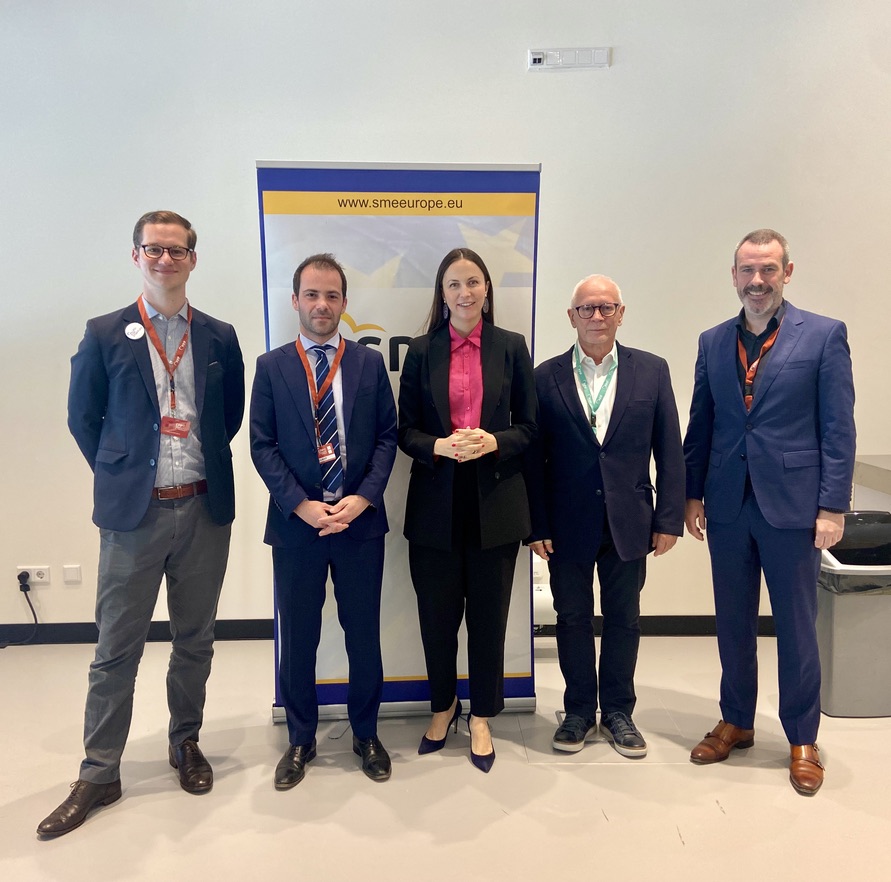Turning Europe’s Data Ambitions into Opportunities for SMEs

In the context of the 27th EPP Congress taking place from May 30th to June 1st in Rotterdam, SME Europe organized the event “Turning Europe’s Data Ambitions into Opportunities for SMEs” to discuss how the Data Act can help turn Europe’s data ambitions into opportunities for SMEs and accelerate Europe’s future data-driven economic prospects.
The workshop was moderated by Michal Boni, Member of the European Parliament 2014 – 2019 and First Minister of Administration and Digitalisation of Poland, and saw the participation of Eva Maydell MEP, Vice-President SME Europe of the EPP, and EPP Group Coordinator for the Special Committee on Artificial Intelligence in a Digital Age, Member of ITRE, ECON Committees; Benedikt Blomeyer, Director EU Policy, Allied For Startups; Alexandre Roure, Director Public Policy, Computer & Communications Industry Association (CCIA); Martin Fitzgerald, Deputy Director General, GIRP — European Healthcare Distribution Association.
Eva Maydell MEP opened the floor stating that the Data Act, “by making it easier to transfer data to and between service providers, can create a space for more actors and businesses, including SMEs to participate in market areas where until now, have been dominated by bigger players.” The main upcoming issues are: opening up contract clauses and terms, the balance of data sharing contracts, and the added value of a Commission led independent Expert Group on B2B data sharing, and cloud contracts.

All participants shared concerns from the SME perspective: it is necessary to ensure access to open data and rights to their own data in such complex value chain processes.
On behalf of Allied for Startups, Benedikt Blomeyer shared that the free flow of non-personal data underpins startup ecosystems. The EPP is in a prime position to continue the leadership it provided with the Free flow of non-personal data regulation in the past mandate, namely to endorse a free flow principle with exceptions for justified national security reasons. As it stands today, the Data Act would reverse this best practice and lead to extra costs for SMEs and startups.
Alexandre Roure from CCIA stated that “new data flow restrictions would significantly harm aspiring SMEs and startups. Addressing undue restrictions in the Data Act will be essential for businesses to reach the EU 2030 Digital Decade targets.”
Representing the healthcare industry, Martin Fitzgerald highlighted the central position of full-service healthcare distributors in supply chains to work with anonymized data to improve patient outcomes. The tools to do that are cooperation between all stakeholders, trusted and secure data, guidelines for standardisation and harmonisation, as well as bridging the digitalisation gap between Member States, rural and urban areas, and patients.
Ultimately, in the words of Eva Maydell MEP, together with all past digital regulations, the Data Act seeks “to establish a future looking economy based on our values around tech.”

